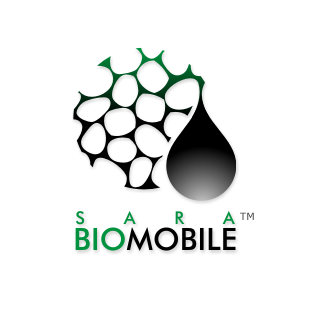Enhanced Oil Recovery
Oil is an energy source that drives industrialization and continued economic growth. In many industrialized nations such as the United States, domestic oil production is in decline and the likelihood of discovering large, new oil reserves is low. This makes it essential that the remaining resources are to be used wisely. Microorganisms will play a pivotal role in determining the quality and effective use of petroleum resources. The problems encountered with petroleum exploitation should be viewed with microorganisms in mind.
Microbes BioSciences has over twenty years experience in the microbial enhanced oil recovery business. Its technology was developed and proved in the US and projects have been successfully completed in China, Argentina, Indonesia, Ecuador, Venezuela and the former Soviet Union. Its technology is based on isolating and culturing natural hydrocarbon reducing microorganisms and introducing these microbes into petroleum reservoirs through production and injection wells.
Microbes BioSciences' SARA BioMobile is a bacterial consortium of scientific strains of microbials for enhanced oil recovery. All microbials are naturally-occurring, non-toxic, non-GMO and are all proven in the oil field.
The porous medium of reservoir rock is a natural habitat for microorganisms. These scientific strains of bacteria colonize and migrate outward, actively working at the oil-water interface. In many oil-producing reservoirs much of the water is attached to rock and does not move. As oil production percolates through the microbe colony, heavy oils are reduced into thinner, less viscous components.
The microbial process produces numerous byproducts resulting in enhanced oil recovery and less viscous oil.
Microbial processes have several unique advantages over other EOR technologies:
- Microbial processes do not consume large amounts of energy as do thermal processes.
- Microbial processes do not depend on the price of crude oil as do many chemical processes.
- Microbial growth occurs at exponential rates, so it is possible to produce large amounts of useful products rapidly from inexpensive and renewable resources.
When Microbial Enhanced Oil Recovery processes are implemented in the field, the efficiency of oil recovery is often dominated by the volumetric sweep efficiency. Microbial changes in volumetric sweep efficiency are often linked with favorable alterations in its capillary pressures and mobility ratio that results in a uniform displacement of stranded oil and more produced oil.
Products and activities of microorganisms potentially useful for EOR and Improved Production
| Product or Activity | Examples | Production Problems |
|---|---|---|
| Gases | CO2 and CH4 | Reservoir Repressurization, Oil Viscosity Reduction |
| Acids | Acetic, Butyric, Lactic | Formation Damage, Poor Drainage, Increase in Carbonate Porosity |
| Solvents | Ethanol, Butanol, Acetone | Oil Viscosity Reduction, Wettability Alteration |
| Polymers | Polysaccharides, Proteins | Mobility Control, Permeability Rectification |
| Bioemulsifiers | Heteropolysaccharides, Proteins | Oil Emulsification, Wax and Paraffin Control |
| Biosurfactants | Glycolipids, Lipopeptides | Interfacial Tension Reduction, Emulsification, Wettability Alteration |
| Hydrocarbon Metabolism | Aerobic, Anaerobic | Paraffin Control, Viscosity Alteration, Methane Production |
| Biomass Formation | Microbial Cells | Selective Plugging |
Many of the above microbial technologies can slow the rate of decline in oil production and extend the operational life of marginal oil fields. With marginal oil fields the goal is to improve oil production rather than the ultimate recovery factor.
The risk of implementing MEOR is low in marginal fields, since the fields are close to the end of their economic life.
Past Projects
| Treated Reservoir | % Increase in Oil Production | Total Incremental Oil Produced - Vs- Control |
|---|---|---|
| San Andres, Argentina | 10% | n/a |
| Queen Sand, USA | 43% | n/a |
| Tupungato-Refugio, Argentina | 29% | n/a |
| Huabei, China | 552% | n/a |
| Xinjiang, China | 36% | n/a |
| Daqing, China | n/a | >3,000 tons |
| Changqing, China | 18% | n/a |
| Piedras Coloradas, Argentina | 66% | n/a |
| Blue Bell Altamont, USA | n/a | 4,380,000 BBL Oil + 15,476,000 MCF |
| Jilin, China | >35% | 6,387.5 tons |
Source: Microbes, Inc SPE Publications (Journal for the Society of Petroleum Engineers)

S.A.R.A. Biomobile Improves Production by Favorably Altering:
- Heavy Oil Profiles
- Sweep Efficiency
- Oil Mobility
- Indigenous Microbial Populations
- Sulfate Reducing Bacteria (SRB)
- Paraffin Plugging